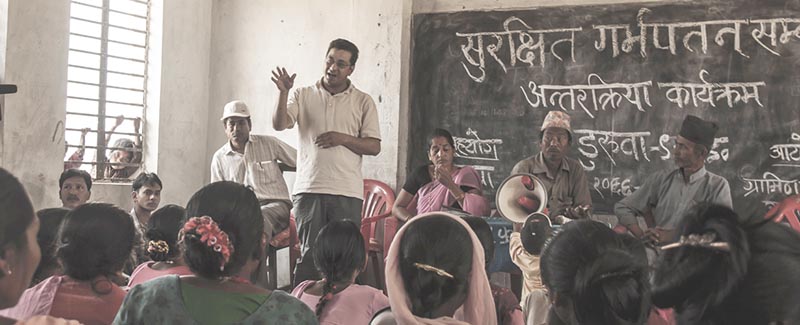More than five lakh unwanted pregnancies every year in Nepal
Kathmandu, March 18
Access to modern contraceptives and maternal and newborn health care is essential for promoting well-being of Nepali women and their children, but a new report published by the Guttmacher Institute and the Centre for Research on Environment, Health and Population Activities in Nepal shows that many women are not receiving the services they need.
In Nepal, there are an estimated 539,000 unintended pregnancies each year. Most of the pregnancies result from an unmet need for modern contraceptive methods.
Among Nepali women of reproductive age, who want to avoid pregnancy, 44 per cent do not use contraceptives. They use the traditional method of family planning.
Furthermore, only 64 per cent pregnant women in Nepal obtain the minimum of four antenatal care visits recommended by the World Health Organisation, and only 61 per cent deliveries are assisted by a skilled birth attendant.
According to the report, the current cost of providing modern contraceptive services in Nepal is Rs 18 billion. Expanding services to cover all women with unmet need, in addition to the current users, would cost a total of Rs 33 billion. The cost of providing all pregnant women with a comprehensive package of maternal and newborn health care (with no change in contraceptive services) would be Rs 135 billion, more than double the current costs.
However, if investments were made in both sets of services simultaneously, annual maternal and newborn care costs would be only Rs 104 billion. This is because increased contraceptive use would reduce the number of unintended pregnancies and eliminate the health care costs they would otherwise entail.
The study showed that for every additional rupee spent on expanding modern contraceptive use, the country would save Rs 200 on maternal and newborn health care, thereby allowing the country to reduce maternal and infant death and disability. This would definitely be more affordable than only expanding maternal and newborn services.
Moreover, providing modern contraception to all Nepali women who need it would yield large returns.
Compared with the 2017 levels, increased contraceptive services alone would result in 87 per cent decline in unintended pregnancies, 87 per cent decline in induced abortion and a 16 per cent decline in maternal death.
“Enabling women to determine when to have children through modern contraception is an effective strategy for reducing maternal and infant death and disability,” said Associate Director of CREHPA Mahesh Puri, adding, “Because women and couples in Nepal increasingly desire smaller families, the demand for modern family planning methods will only grow.”
The responsibility for fulfilling this demand will have to be shared by national, provincial and local governments, private sector, and national and international development partners.






